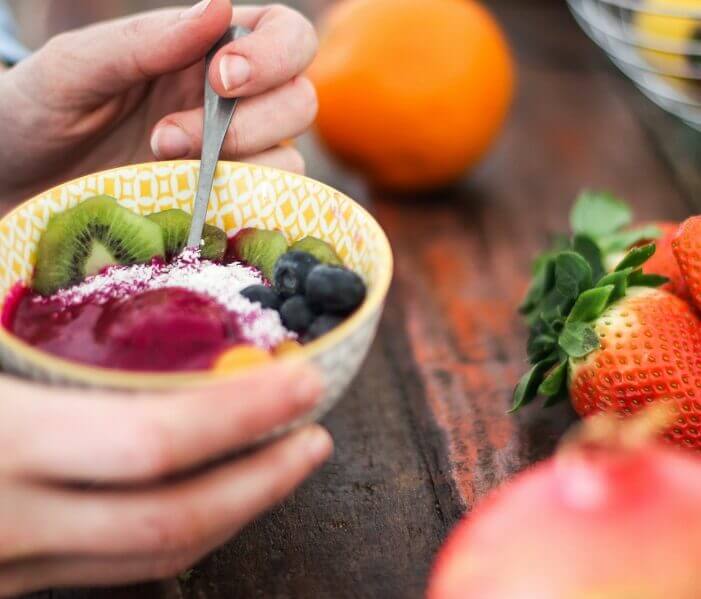9 mins read
Are Nutritional Supplements Good For You?

- What are Supplements?
- How Are Supplements Absorbed Into The Body Compared To Food?
- Do I Need To Take A Supplement?
- What Causes Vitamin Deficiency?
- Which Supplements Should I Take?
- Vitamin D
Nutritional supplements are widely available, but do we all need to supplement our diets and are supplements really doing us any good?
In this article, we look at whether you need to take supplements and which vitamin and mineral supplements may be of benefit. We also provide guidance on how to choose a good quality supplement.
What are Supplements?
So, first things first, what do we mean by supplements or nutritional supplements? Well, we are referring to supplements that provide the same nutrients as food and come in the form of tablets, caplets, gels, powders, or liquids which are used to top-up our diet and contain ingredients such as:
- Vitamins
- Minerals
- Enzymes
- Amino acids
- Herbs
Supplements can help us to get the correct amount of these vital nutrients that the body requires to function normally.
Many people choose to take supplements but taking them for a prolonged period or taking too much can have serious side effects. For example, taking high doses of iron or iron supplements can cause side effects such as:
- Nausea
- Vomiting
- Constipation
- Stomach pain
Therefore, it is important to monitor how much of a certain nutrient you are supplementing, particularly if you are acquiring it through your diet, too.
How Are Supplements Absorbed Into The Body Compared To Food?
Nutritional supplements are absorbed by the body in the same way as nutrients from food. This is due to supplements consisting of a synthetic or manufactured version of the nutrient in question.
Because certain nutrients are absorbed better by the body if accompanied by other nutrients, it’s better to take most nutritional supplements with a meal.
You should avoid drinking too much caffeine and/or alcohol around the time the supplements are being taken as they can inhibit nutrient absorption.
Do I Need To Take A Supplement?
It can be hard to know which supplements are worth taking and whether there are any disadvantages to taking supplements. So, do we need to take a supplement at all?
In short, no, most people won’t need to take supplements because we are able to get all the nutrients, we need by eating a varied, healthy, and balanced diet.
A varied diet with carbohydrates, a variety of fruit and vegetables, beans and pulses, and good quality sources of protein such as meat, fish, eggs, or vegetarian and vegan alternatives should provide nearly everything in sufficient doses.
However, vitamin deficiencies can occur in some cases and this is when taking a vitamin supplement will help get nutrient levels back up to a normal range.
What Causes Vitamin Deficiency?
Each individual is different, and due to the modern lifestyle many of us adopt, not everybody manages to eat a healthy diet all the time. Data from the EuRRECa project shows an inadequate intake for vitamin C, vitamin D as well as folic acid, calcium, selenium, and iodine.
“Although food is the ideal way to improve micronutrient levels, at certain times – especially if an individual’s levels are low – they may want to look at high-quality supplements to try and raise levels whilst making long-term improvements to their diet. Vitamins D and B12, Iron (ferritin) and folate would fall into this category” explains Sarah Bolt, Founder of Forth.
In addition, there are certain diets and conditions that can result in a vitamin deficiency:
- If you are on a vegan diet
- If you have allergies or food intolerances
- If you have certain conditions like IBS
Vegan’s often need a vitamin B12 supplement and in winter months the NHS recommends that most people take a vitamin D supplement.
Symptoms of vitamin deficiency can include:
- Feeling tired
- Low energy or mood
- Weakness
- Or increased susceptibility to illness
In these cases, taking good quality supplements in the right quantities are of benefit and good for your overall wellbeing.
You can find out more by reading our article on vitamin deficiency in the UK.
Which Supplements Should I Take?
The supplements you need to take depend a lot on which ones you are deficient in. Once this has been identified, recommendations about which supplements, or the foods that can provide those nutrients, can be made.
As mentioned above, the most common supplements that people require include vitamins D and B12. Iron in the form of ferritin and folate (folic acid/vitamin B9) are other supplements people may need to take. These are all related to the production of red and white blood cells, body metabolism, and energy production.
The Department of Health, also recommends folic acid and vitamin D:
- Folic acid for women who are trying to get pregnant or who are pregnant up until their 12th week of pregnancy
Vitamin D for all adults living in the UK, especially during the winter months
Let’s take a look at these two vitamins in more detail.
Folic Acid
Folic acid (folate/vitamin B9) is recommended for women who are trying to get pregnant and women who are pregnant should take 400 micrograms of folic acid every day until the twelfth week of pregnancy.
Folic acid is important, alongside vitamin B12, for producing healthy red blood cells, keeping the nerves functioning appropriately, and is also essential for the formation of DNA, the building blocks of life.
The supplementation of folic acid both before and during pregnancy is recommended to prevent neural tube defects such as spina bifida.
Natural sources of folic acid include:
- Spinach
- Kale
- Brussel sprouts
- Yeast and beef extracts
- Fortified foods
- Oranges
- Poultry
- Shellfish
- Liver
Although it is found in green leafy vegetables, folic acid can be lost from vegetables during cooking. The reason for this is it is a water-soluble vitamin, so it dissolves in water. To avoid this, you should avoid overcooking or opt for steaming your vegetables instead of boiling.
Vitamin D
There are very few good food sources available which provide adequate vitamin D. Instead, our skin produces vitamin D when the sun’s UV rays are emitted and strike the skin. To become active, it must go through some chemical processes in the body so it can be used to keep our bones strong and healthy.
Because we rely heavily on sunshine to top-up our vitamin D, it is believed that half of the world’s population has insufficient vitamin D levels and 1 billion people have a vitamin D deficiency.
Inadequate exposure to sunlight is the most common reason for reduced vitamin D levels. Most people will acquire enough vitamin D by being out in the sun for short periods from late March to late September in the UK. However, there are some groups of individuals who may need to supplement, such as:
- Individuals of African, African-Caribbean or South Asian origin. These individuals require longer in the sun to produce the same amount of vitamin D as individuals with lighter skin
- Children aged under 5 should be given a vitamin D supplement even if they spend time in the sun
- People who are frail or housebound
- Those in care homes
In the UK, everyone over the age of 5 is also encouraged to supplement their vitamin D intake with 10 micrograms per day.
Care should be taken not to exceed the reference daily intakes (RDIs) guidance given on the bottle of the supplement.
What Are The Disadvantages Of Supplements?
There are three potential disadvantages to taking supplements:
1. Some Vitamins Can Be Toxic If Taken In Excess
The first is that some vitamins and minerals are fat-soluble, and they can be stored in body fat if you consume more than you need. This means that some of these nutrients can if taken to excess, build up to toxic levels over time. To avoid this, never take more than the recommended daily dose.
2. Body’s Ability To Flush Out Unwanted Nutrients
The second is that other vitamins and minerals are water-soluble, and if you are taking too much of these, or taking them when you don’t need to, your body will just flush them through. This means you are essentially flushing the money you’ve spent on them down the toilet.
3. Variation In Quality And Dosage
The third is supplements aren’t regulated the same way that medicines are, although they are covered by food regulations which means they are safe to consume. This does mean that there is a lot of variation in quality and dosage, so it’s worth taking some time to find a good, reputable supplement brand.
How Do I Find A Good Vitamin Supplement
An Informed-Sport accredited supplement is a sign of quality as Forth Founder, Sarah Bolt explains:
“…Informed-Sport supplements can be used as a mark of quality. This is because products using that mark have to do through an accreditation process.”
The dosage is also something to check as certain supplements don’t supply a full or near-full recommended daily dose, which means that you may not be getting as much as you need from the supplement.
The dosage on Informed-Sport accredited supplements will be accurate, with recommended intake levels provided.
How Do I Check for Vitamin Deficiency?
You can check your nutrient levels to find out if you have a vitamin deficiency through a simple, at-home finger prick blood test.
Forth offer two products that check a range of nutrients and help identify whether you are deficient and may need to change your diet or take a supplement.
1. Nutricheck
Our Nutricheck home blood test checks whether you are getting all the right vitamins and minerals from your diet. It includes Active B12, Calcium, Folate, Ferritin, Iron, Vitamin D, and Magnesium, along with biomarkers for cardiovascular health, liver health, and blood. Learn more
2. Baseline Plus
Our Baseline Plus health check tests over 20 key biomarkers for cardiovascular health, liver health, metabolism, and vitamins and minerals including Active B12, Folate, Ferritin, Vitamin D, and Calcium. Learn more
You can also add additional biomarkers to your test to tailor it to your needs.
Summary
The best way for the body to get all of the vital nutrients it needs is to eat a balanced and varied diet.
The body only needs vitamins and minerals in small amounts and eating the right foods should provide all the nutrients the body needs. Try to include the following in your diet:
- Starchy foods like bread, pasta, and potatoes
- Fruit
- Vegetables
- Dairy foods
- Meat
- Fish
- Eggs
Some vitamins like vitamin D can be made by our body but this requires sunlight and even though there are limited dietary sources, sunlight is the best way to guarantee a good vitamin D status. Therefore, it may be necessary to supplement your intake depending on your location and circumstances.
People choose to take nutritional supplements for a variety of reasons:
- To improve health
- Reduce the risk of chronic disease or illness
- Reduce signs of ageing
- To aid the treatment or prevent the progression of an illness
- To boost vitality
- Boost vitamin levels if deficient
Before taking supplements make sure you do your research, speak to a health professional and test your nutrient levels to find out if you are deficient – this can prevent you from spending a lot of money on supplements you don’t really need.
- Health scores calculated
Close
Article references
-
Cawley, S et al. (2015). A Review of European Guidelines on Periconceptional Folic Acid Supplementation. European Journal of Clinical Nutrition, pp 1-12.
-
Hodgetts, V, A et al. (2014). Effectiveness of Folic Acid Supplementation in Pregnancy on Reducing the Risk of Small-For-Gestational Age Neonates: A Population Study, Systematic Review and Meta-Analysis. BJOG: 122, pp 478-490.
-
Nair, R and Maseeh, A. (2012). Vitamin D: The “Sunshine” Vitamin. J Pharmacol Pharmacother: 3(2), pp 118-126.
This information has been medically reviewed by Renee Mcgregor
Renee is a registered dietician with 20 years' experience working in clinical and performance nutrition. She is the author of best-selling books 'Training Food', the 'Fast Fuel' series and 'Orthorexia, When Healthy Eating Goes Bad'. Renee is regularly called upon as an expert contributor to many national publications, as well as radio and TV, including Newsnight and BBC 5 Live. As well as being the nutritional lead for Forth, Renee works with a number of national governing bodies, including Scottish Gymnastics, The GB 24 hour Running Squad and The England Ballet company.

Renee Mcgregor
Nutrition Lead
Related articles
Like this article? Here are some more based on similar topics.





